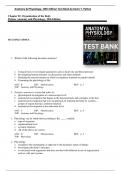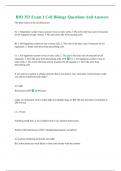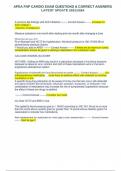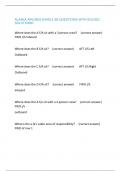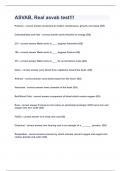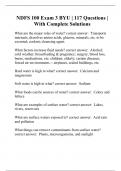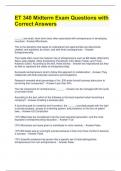Examen
Anatomy & Physiology, 10th Edition Test Bank by Kevin T. Patton
The document is not the original book; it's a handy collection of pre-written exam questions and answers that helps educators gauge students' understanding of the course material. It’s a great resource for creating quizzes and exams, saving teachers time and ensuring students are assessed f...
[Montrer plus]
